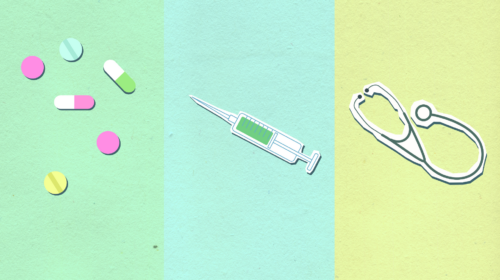Experiencing your loved one suffering an overdose can be terrifying and unexpected. What’s the proper way to respond to the situation? How much do you share with the paramedics and first responders when you call? Will they get through the experience and still be the same person they were before overdosing?
The statistics of overdose deaths in the U.S. were published in August. These statistics reported that over 100,000 Americans died from drug overdoses in the past year in 2022.
According to the World Health Organization, 600,000 deaths were attributable to drug use worldwide in 2019. The risk of overdosing is high and on the rise as a result of the spike in fentanyl abuse. As the loved one of an addict, these statistics can be frightening and leave you feeling helpless.
It’s all too easy to feel impotent, frustrated, and exhausted when you don’t know how to properly handle a situation. Watching someone you love struggle with the worst of addiction can feel like the end of the world.
Experiencing a loved one overdose can make you feel like they are too far gone or that there’s no hope. Recovery is about celebrating the successes of those who have made it to the other side of their struggles. While it might seem terrifying, many of those in recovery have experienced an overdose.
The truth is, as long as the addict is still breathing, there is a chance for them to recover. Although seeing your loved one overdose can make you feel powerless, getting them the help they need afterward is crucial.
If you are at high risk of witnessing an overdose, you should prepare yourself to take action. Keeping your loved one alive and getting them the substance abuse treatment they need and deserve is the first priority.
Know the Signs of Overdose
In order to prepare yourself, it’s important to know what an overdose looks like while it’s happening. If you can’t recognize the symptoms, it can be hard to know when your loved one might need your help.
There are three key symptoms, or the “opioid overdose triad,” that can help you identify if your loved one is overdosing. Those overdosing often have extremely pinpoint pupils, respiratory depression, and unconsciousness.
Opioids affect the respiratory system, causing the user to lose control of their breathing patterns. Their breathing patterns will become slow, shallow, strange, or stopped. As the overdose progresses, it causes a loss of consciousness. This means that your loved one will stop responding to any outside stimuli, such as touching or speaking to them.
Respond Quickly
If your loved one has overdosed and is unresponsive, a quick response is imperative. Regardless of the situation, always call 9-1-1, even if you think your loved one will get in trouble for possession of drugs or paraphernalia. While many states have Good Samaritan Laws that may provide some legal protection for those seeking medical help for an overdose, the specific provisions and the extent of legal protection vary by state.
First responders will be sent to your location who are medically trained to keep an overdose victim alive. While you wait for the paramedics or police, administering naloxone will be the most effective way to bring them back.
Naloxone is an emergency medication that reverses the symptoms of opioid overdose and is available for purchase at pharmacies and free from many advocacy organizations. If you know that your loved one is using opioids, keeping naloxone around will be your best defense against an overdose death.
You should perform CPR to try to get or maintain a pulse until the medics arrive. The quicker you react and the more you attempt life support, the higher the chances of survival.
Get Your Loved One to Treatment
After your loved one has been stabilized, it will be time to get them to substance abuse treatment. After the initial relief and knowing they’ve made it through the overdose alive, getting them help is necessary.
It should be noted that there is a risk of repeated drug use following an overdose and revival. This emphasizes the importance of connecting individuals with appropriate substance abuse treatment and support systems as part of a comprehensive approach to recovery. You can try to prevent another overdose by preparing their transportation to a substance abuse treatment facility.
You may be met with anger or refusal from your loved one at the mention of treatment. When this happens, you must be firm in your decisions and convictions.
Allowing your loved one to go right back to the same place or situation will almost always lead them directly to use opioids again. No matter how much they beg or promise that they won’t, those struggling will do anything for their fix. Providing an ultimatum and no longer enabling them will provide the push they need to get help.
Keeping your loved one alive through an overdose means that they still have an opportunity to recover. Stay educated, aware, and prepared for any situation. Your loved one has a fighting chance at recovery and you can be the one to throw them in the ring.
Finding help for them is a matter of life and death. If someone you love is struggling with substance abuse, reach out to Recovery Unplugged today. We’re here to provide the treatment they need before it’s too late.

























